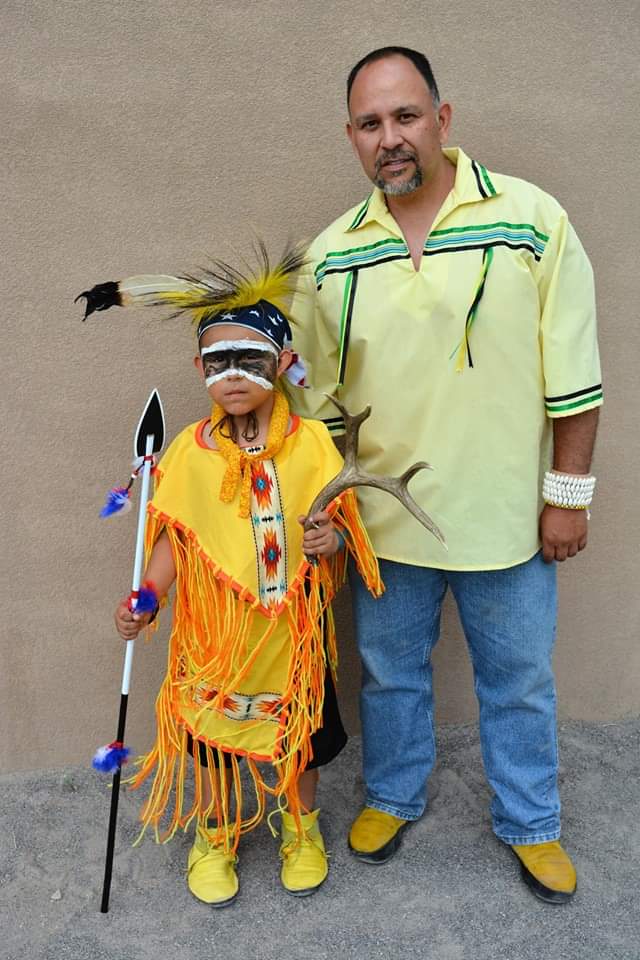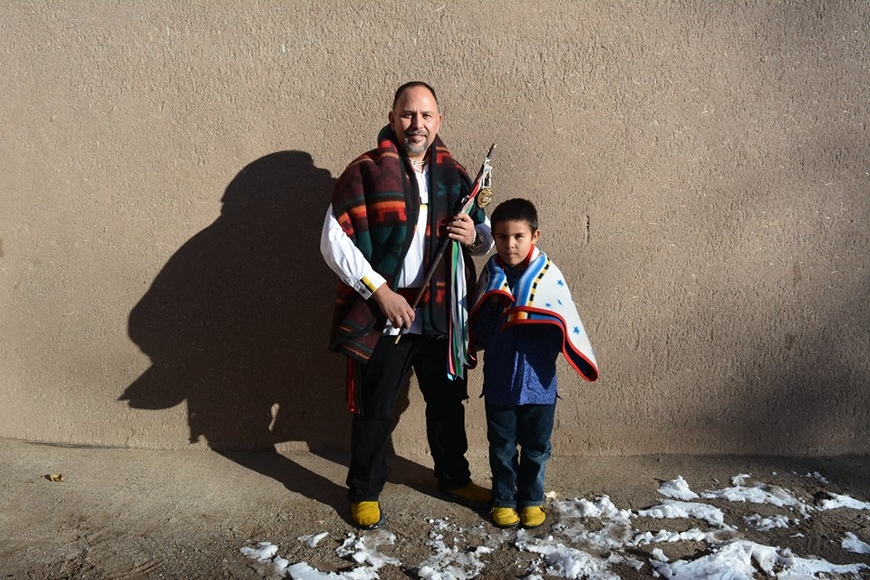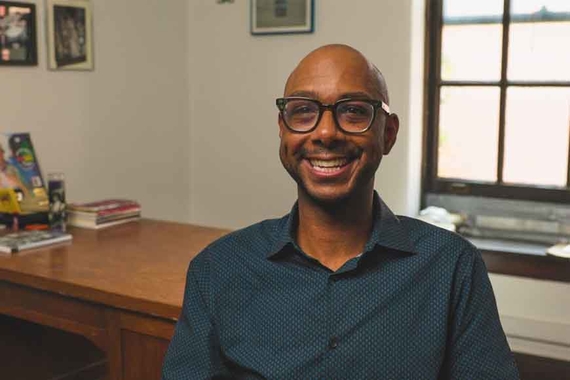Q&A with First Lieutenant Governor and CLA Alum Matthew Martinez
The liberal arts teaches people to be thoughtful and ethical leaders who are prepared to listen and see issues from different perspectives. Alumnus Matthew J. Martinez (PhD ‘08, American studies) is a leader in his community, the Ohkay Owingeh Pueblo.
As of January 2017, Martinez has been serving as his community’s first lieutenant governor and is currently on academic leave from Northern New Mexico College where he is an associate professor of Pueblo Indian studies.
He has been a consultant with tribes and is a published author on Pueblo Indian history, tourism, and economic development. He has also worked in documentary filmmaking serving as co-producer for two hour-long documentaries that have aired on PBS and are a part of the curriculum in New Mexico’s K-12 schools. A Thousand Voices (2015) covers the historical roles and responsibilities of indigenous women in New Mexico and Canes of Power (2012) details the history of the Lincoln Canes and Pueblo sovereignty.
What drew you to American studies at UMN?
For my doctoral studies, I was looking for a school away from the southwest since I completed my undergraduate degree at the University of New Mexico and my master’s degree at Arizona State University. What appealed to me about American studies at Minnesota was the quality of faculty working across disciplines and engaged in scholarship impacting indigenous communities. I was also interested in living in Minneapolis, which has a long legacy of community activism.
Who challenged and championed you while you were a graduate student?
I can say that every faculty member in the department had a hand in shaping my outlook in the field of American studies. Early in my graduate seminars, David Noble was pivotal by challenging me to think about historiography in relation to indigenous nations. Each of my advisors, Patricia Albers, Brenda Child, Jean O’Brien, and David Martinez created a supportive network and encouraged me to begin presenting at academic conferences.
By sharing my initial seminar papers, I was able to gain valuable feedback and network with other indigenous researchers at conferences. The faculty was a critical component by not only helping gain conference experience but later advising on successful funding packages I received from the Ford Foundation and the Mellon Foundation.

What memories do you have from your time at UMN?
I have fond memories of sharing seminar papers over a wild-rice meal with students and faculty. Despite the size of the campus, I always felt part of a close community of public intellectuals, voices, and perspectives. Minnesota will always be my other home. I miss all things Minnesota–the football games at the Metrodome, bike riding around the lakes, the state fair, and the inspiring lectures and events at the Weisman.
What are some ways that your American studies degree prepared you for serving as lieutenant governor?
American studies prepared me to ask meaningful questions that directly affect tribal nations. As lieutenant governor, I constantly interact and collaborate with policymakers at the local, state, and national levels who make impactful decisions affecting local communities. Our tribal nations and surrounding communities share common needs regarding challenges in our school systems.
Because of my training in cultural histories and research methods, I’m positioned to strongly advocate for families and communities who are rarely at the table. I have a nine-year-old son. I recognize the decisions I make on behalf of the tribe will directly impact his generation and those that will follow. American studies trained me to think critically about intersectionality and how this unfolds across generations.
What advice do you have for current students in your field?
Don’t lose sight of community engagement and reciprocity.
We are here because of those who have come before. We all have the responsibility to return and contribute to our various knowledge systems. We are a people of relations. I believe I am a better faculty member because my work and teaching continue to be connected to tribal nations. Your scholarship and teaching will benefit from these relations.
This story was written by an undergraduate student in CLA.



